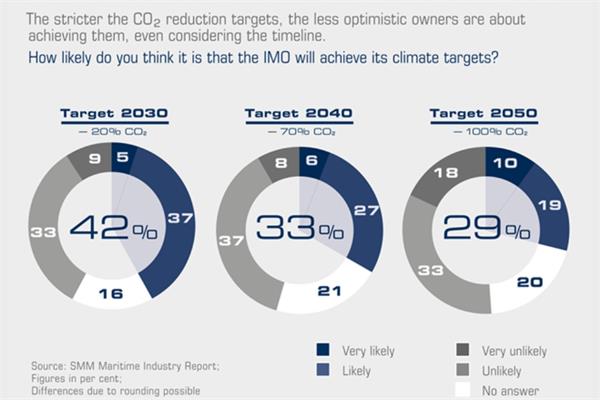
The maritime sector remains committed to sustainability despite widespread scepticism over global climate targets, according to the latest SMM Maritime Industry Report (MIR).
At SMM
2026, the global maritime flagship fair scheduled for September next year, companies will highlight technologies driving the energy and environmental transition in shipping, with a growing emphasis on coatings and surface treatments.
The International Maritime Organization (IMO) recently suffered a setback, as member states failed to agree on a global climate protection policy, postponing the decision until next year. During an extraordinary session, the IMO’s Marine Environment Protection Committee (MEPC) discussed measures to meet climate goals, including a global alternative fuel standard and penalties for vessels exceeding emission limits.
“Everyone involved understands there won’t be that one single technology solution to achieve the IMO’s zero-emission goal by 2050 – neither in terms of propulsion technology nor when it comes to energy sources. There will be a combination of many technologies enabling the shipping sector to achieve net zero, combined with operational efficiency enhancements including digitalisation and Artificial Intelligence. At SMM, decision-makers will find the full spectrum of technologies,” has stated Claus-Ulrich Selbach, Vice-President Exhibitions Maritime & Energy at Hamburg Messe und Congress.
Industry insiders, however, remain cautious. The MIR 2025, based on responses from around 1,500 industry leaders, reveals that roughly half of shipowners and suppliers (51 per cent) doubt the net-zero target can be reached by 2050, while 46 per cent of shipyards share this view. Only one third of respondents (29 per cent of shipowners and 26 per cent of yards) remain optimistic.
Despite these doubts, sustainability remains a key priority. Around 78 per cent of suppliers expect it to grow in importance, and nine out of ten companies are already implementing concrete measures—an increase of eight per cent compared with the previous survey.
A key area of focus is advanced coatings and anti-fouling technologies, which can significantly reduce fuel consumption by improving hull efficiency. IMO’s Net-Zero Framework is already shaping investment, operations, and material choices across the maritime value chain. According to DNV’s Maritime Forecast to 2050, the number of climate-friendly vessels is steadily rising, though the supply of alternative fuels remains limited. Over the next decade, demand for LNG, biofuels, methanol, and other hydrogen-based fuels is expected to grow, alongside hybrid propulsion solutions.
The MIR survey shows that 78% of shipowners plan to invest in efficiency-improving technologies, particularly propulsion systems (66 per cent), digital solutions (58 per cent), and advanced hull coatings, highlighting the crucial role of surface treatment in reducing emissions and operational costs.
About SMM
SMM, the leading international maritime trade fair, will take place in Hamburg from 1–4 September 2026. Featuring over 2,200 exhibitors and around 48,000 visitors from more than 100 countries, the event covers the entire maritime value chain across 90,000 m² in twelve halls. The 2026 edition will focus on the maritime energy transition, digitalisation, and surface technologies, with free-access conferences and networking opportunities throughout.